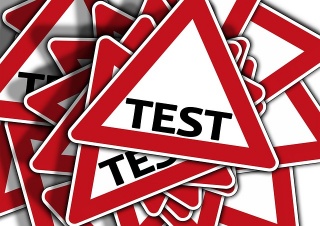Principles of marketing/PMKT102/Researching customer needs and preferences/Quiz
From WikiEducator
Jump to: navigation, search
The questions published at the end of each learning pathway are re-used for the knowledge test for learners interested in earning a digital badge or certificate of participation for the Market research and customer insights (PKMT102) micro-course. Please consult the Certify participation page for more information.
True - false questions
Indicate whether the following statements are true or false:
- Analytics software is indispensable in determining the success of a marketing campaign.
- True
- Correct, whether analytics are derived from Microsoft Excel, Google Analytics or software-as-a-service, marketing research that helps analyse sales transactions, market research, and demographic data associated with a customer database is vital.
- False
- Incorrect, analytics of historical and real-time information combines critical customer data (e.g. purchase decisions, website performance, entry and exit points, sales conversion information) with Web browsing data to gain a better understanding of the individual customers’ marketing channel preferences and other marketing decisions. The insights gleaned from analytics can be used to increase sales volume, frequency of purchasing, website optimization and more.
- True
- According to the text referred to in the ‘Researching Customer Needs and Preferences’ learning pathway, there are four main areas covered by marketing research: market trends, sales, products, and corporate growth and development.
- True
- Incorrect - According to the reading, there are five main areas. Refer back to the reading on ‘Marketing Research’ in Core Concepts of Marketing if you are unsure of what they are.
- False
- You are right - this list misses out research on advertising and promotion. This is an important area, as it can identify ways to enable customers to purchase a product or service earlier in the product lifecycle than would otherwise be the case (e.g. offering a $20 discount coupon, if you spend $100).
- True
- A marketing research study that is repeated and gets the same results, is considered to be 'reliable'.
- True
- Correct. If a research study is repeated with the same conditions and population, and generates the same results (or nearly the same), the research is considered 'reliable'.
- False
- Incorrect. This statement is a good explanation of reliability in research. Often, reliability and validity can be confused. A research study is valid, if it actually tested what it was designed to test. However, the data may not be reliable.
- True
- Marketing research is focused on research in a given market.
- True
- Incorrect. 'Marketing research' is all research conducted within marketing to support and improve marketing activities.
- False
- Correct. Market research pertains to research in a given market to determine its size and trends, while marketing research is about all research conducted within marketing.
- True
Multiple choice questions
- Marketing research comprises:
- Primary research and field research
- Incorrect – primary and field research are the same and involve conducting original research for a specific purpose.
- Secondary research and desk research
- Incorrect - secondary and desk research are the same and involve using data already collected by others.
- Primary research and secondary research
- That is correct. Both kinds of research are used in marketing research.
- Primary research and field research
- The marketing research process spans various stages. The correct stages are:
- Problem definition, research plan development, data collection and interpretation, data analysis and interpretation, and information dissemination
- Correct – these are the stages of marketing research.
- Problem definition, research plan development, data analysis and interpretation, and information dissemination
- Not exactly – you are missing the important stage of data collection and interpretation, which is before data analysis and interpretation.
- Problem definition, research plan development, data collection and interpretation, and information dissemination
- Not exactly – you are missing the important stage of data analysis and interpretation which is needed after the data collection and interpretation in order to produce a research report.
- Problem definition, research plan development, data collection and interpretation, data analysis and interpretation, and information dissemination
- Which ONE of the following is the best way to integrate marketing research into a marketing plan?
- Provide a comprehensive analysis of all data and information gathered
- Incorrect - this approach will overwhelm the reader with data, possibly confuse them and not lead to effective and quick decision making.
- Provide a summary of the data and information gathered accompanied by tables showing numbers and percentages
- Incorrect – this approach may work for some people that are good with numbers and interpreting them, but most people are likely to struggle with a lot of numerical data, so make sure that you provide a narrative in your report and include numerical information with comments in the appendix.
- Provide specific data supporting your point or position, minimizing the use of numbers and percentages in the narrative, and citing credible sources to justify your point
- Correct – this approach will be effective as you will not overwhelm the reader with data, but provide enough detail for your decision-makers to make intelligent, informed judgments.
- Provide a comprehensive analysis of all data and information gathered
- The first stage in the marketing research process is to:
- Define a problem
- Incorrect – you also need to set the research objectives before you start.
- State the research objectives
- Incorrect – you also need to define the problem so you can set the objectives.
- Define a problem and state the research objectives
- Correct - you need to define a problem AND set the research objectives, before you start your marketing research.
- Define a problem
